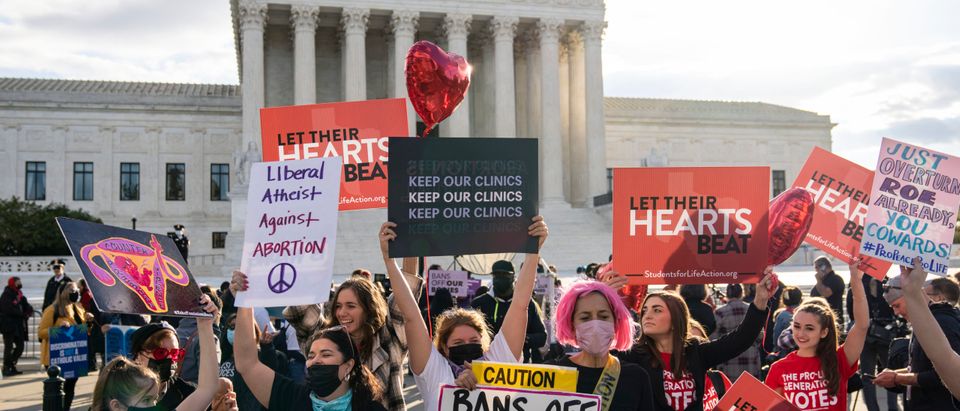The Supreme Court will allow Texas’s Heartbeat Act to stay in effect, but it will allow abortion providers to sue Texas over the law.
The Texas law bans abortions after a fetal heartbeat can be detected, which typically occurs at around six weeks. Rather than enforcing the law through the state, the law allowed private individuals to sue those who perform or aid in the performance of abortions seeking $10,000. This framework initially prevented abortion providers from suing Texas over the law’s constitutionality.
“The Court concludes that the petitioners may pursue a pre-enforcement challenge against certain of the named defendants but not others,” the court’s decision, written by Justice Neil Gorsuch, read.
Justice Sotomayor dissented in part, arguing that “the Texas Legislature has substantially suspended a constitutional guarantee: a pregnant woman’s right to control her own body.” (RELATED: California Considers Funding Abortion Tourism As Part Of Plan To Become ‘Sanctuary’ If Roe Is Overturned)
“The law has threatened abortion care providers with the prospect of essentially unlimited suits for damages,” Sotomayor wrote. “The chilling effect has been near total, depriving pregnant women in Texas of virtually all opportunity to seek abortion care within their home State after their sixth week of pregnancy.”
With today’s controlling opinion in Whole Women’s Health, it was refreshing to see the Court rightly address procedural questions about SB8 and its jurisdiction as such.
Could the days of the Court’s “abortion distortion” jurisprudence finally be behind us? I’m optimistic. /1
— Carrie Severino (@JCNSeverino) December 10, 2021
Pro-life activists and conservatives praised the decision. “Could the days of the Court’s ‘abortion distortion’ jurisprudence finally be behind us? I’m optimistic,” commented Carrie Severino, president of the Judicial Crisis Network.
“We celebrate that the Texas Heartbeat Act will remain in effect, saving the lives of unborn children and protecting mothers while litigation continues in lower courts,” commented Marjorie Dannenfelser, president of the Susan B. Anthony List.
Reactions from other pro-life groups were tempered by uncertainty about the Dobbs v. Jackson Women’s Health case which could overturn Roe v. Wade. “The Texas law came about because for decades Roe has blocked states from being able to regulate abortion, a right the Constitution gives to the people through their elected representatives,” said Jeanne Mancini, president of March for Life. “We hope in the upcoming Dobbs case the Court returns this right to the people.”
The Supreme Court heard oral arguments in the Dobbs case on Dec. 1, and it is expected to issue a decision in June. The case gives the court an opportunity to overturn Roe v. Wade, which limits states’ from abilities to regulate abortion.
All content created by the Daily Caller News Foundation, an independent and nonpartisan newswire service, is available without charge to any legitimate news publisher that can provide a large audience. All republished articles must include our logo, our reporter’s byline and their DCNF affiliation. For any questions about our guidelines or partnering with us, please contact licensing@dailycallernewsfoundation.org.


